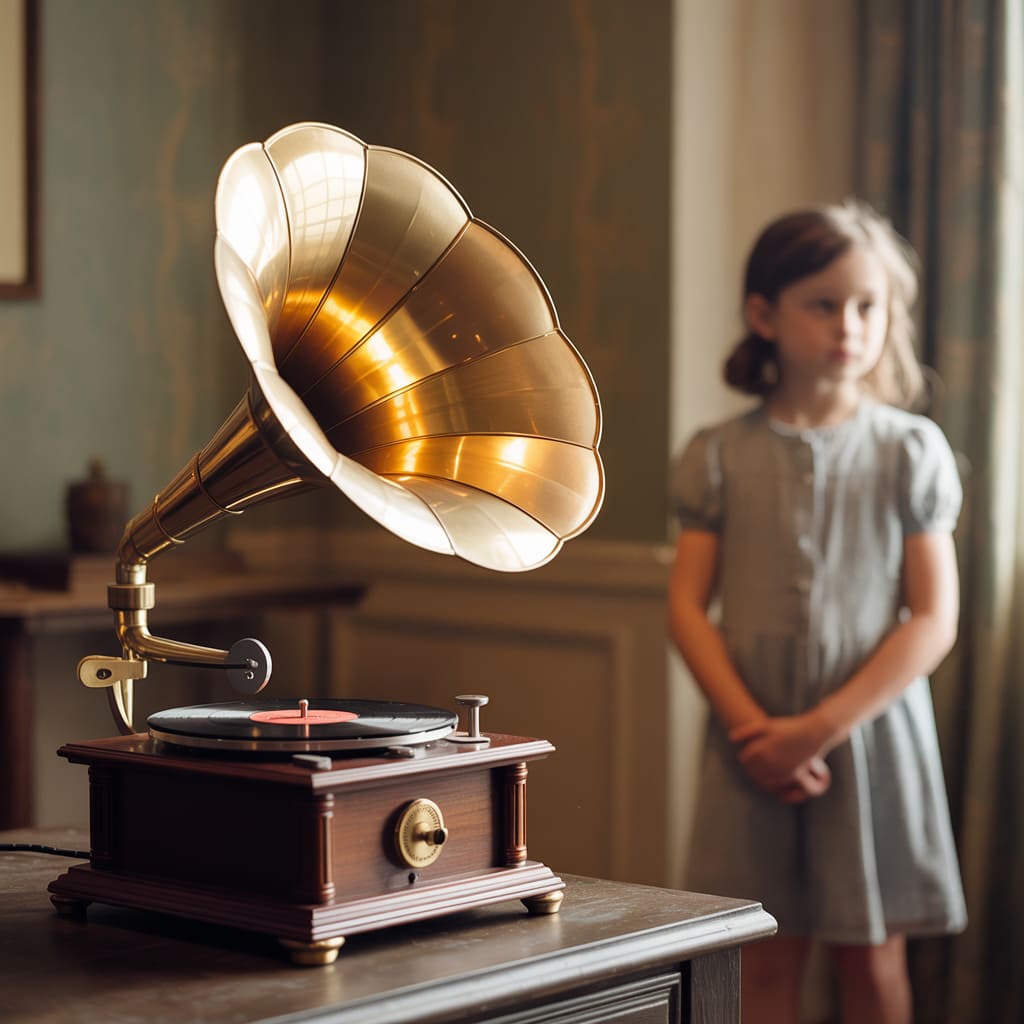
And no one to ask
The daughter reminisces about the music her father loved – songs that shaped her taste and funny stories about mispronounced lyrics.
We’re making a movie about Dad. I’m putting music to the movie. I’m remembering his favorites. World classics of his time: Simon & Garfunkel, The Doors, The Beatles, Nazareth, Eurythmics, Pink Floyd, Led Zeppelin, Deep Purple, Leonard Cohen, Queen… House of the Rising Sun, Have You Ever Seen the Rain, Dreams….
Fellini classics and Nino Rota – our family weekend in the traditional black and white accompaniment of Italian guests.
Here they are… the sounds of his life.
Our classics with him: Astor Piazzolla, Cesária Évora, Pink Martini, Katie Melua, Norah Jones, Zaz… Sometimes Dad would ask “Put on something of your own”, meaning something from our shared list. And when I’d put something new on, he’d wince softly and say, “Well… well, it’s not that different.”
The smart speaker has memorized all of his music. Sometimes it turns itself on and starts playing. It plays different things at different times, no timer. We sometimes try to turn it off, but it doesn’t respond to our commands. And I’m not kidding right now. But we’re used to it.
Continue thinking.
Soviet classics: Vysotsky and Bernes… Of course, “There is only a moment”. Of course, “Your Nobility.” Of course, the song of Dad’s childhood: “Shalands full of mullet… Kostya brought to Odessa”. Grandpa used to sing it to Daddy, almost teasingly. Grandpa has a beautiful voice, and he is a marvelous dancer. The neighbors thought that the ghost of Chaliapin had settled over them, joking with Adriano Celentano, who had flown to Moscow for the premiere of his film.
I wouldn’t be surprised if that’s what happened. Grandpa was known by all the bohemia of the capital as an excellent diagnostician, with humor and high intelligence. So high that they trusted him with their most indiscreet illnesses.
Dad’s taste in music grew out of his grandfather’s music. It grew and multiplied.
I remember my grandfather’s singing (my lullabies too… wow!): Vertinsky’s “Tango Magnolia.” Grandpa’s lulling tango. Vertinsky’s only on vinyl. A museum-quality gramophone on an antique table with lion’s paws. Every time Grandpa would wind up the gramophone on this lion table, he would look slyly at me and ask, “This Vertinsky of yours – is he sure he doesn’t scratch?” And I would answer with my grandfather’s learned joke: “Oh, no… no, no. Only our records are scratched!”
One weekend at my grandparents’ house, I listened to Vertinsky so much that the first weekday I was sent to a speech therapist on an emergency call. In a couple of days, I learned a new way to p-v-ag-va-vate “r” and spoke in a chant, dreaming aloud of being in the mysterious “banana-lemon Singapore, in boo-ea”.
The speech therapist corrected my bohemian accent, but until the end of kindergarten my main friend was Marinka, whom I listened to with awe and who took us both to a world that no one can access, where the words seem to be the same, but pronounced differently. Marinka was very beautiful, mischievous and intelligent. Me (not without modesty), the same, but less mischievous. I was afraid to let down Grandpa and Papa, whom our entire Southwest District knew. Marinka quickly learned to read, and during the afternoon kindergarten walk with her we crawled under the fence “net rabitsa” and hid with a book in the bushes “on the other side”. On the other side of our world of inverted syllables and sounds, reading in our own way everything we could read. Marinka could not pronounce half of the letters, and sometimes rearranged the syllables in her own way. Few people understood her. But Marshak, Barto and Blaginina in her performance captured my imagination, sending me from Soviet Moscow to banana and lemon Singapore.
The speech therapist recommended not to listen to Vertinsky “at least until he goes to school” and to give the child less time “for all sorts of unrealities”. But Vertinsky’s Singapu-in turned out to be much more real than all the maps in the school atlas. I’m so glad Daddy didn’t listen to her.
I think of all the other Soviet songs that went through Dad’s childhood. I’m thinking, why am I remembering everything? I’m going to ask my grandfather about my dad’s audio diary. He compiled it for my dad. He danced to those songs himself. He taught me, but I kept falling down. I’m gonna ask my grandfather.
He’s not here.
He passed away four months before Daddy.
Where are you all? Where? You! The main men of my banana-lemon childhood? Where’d you go?
I lost them all. You, Katya, have lost everyone…
There’s only music left. And there’s no one to ask.